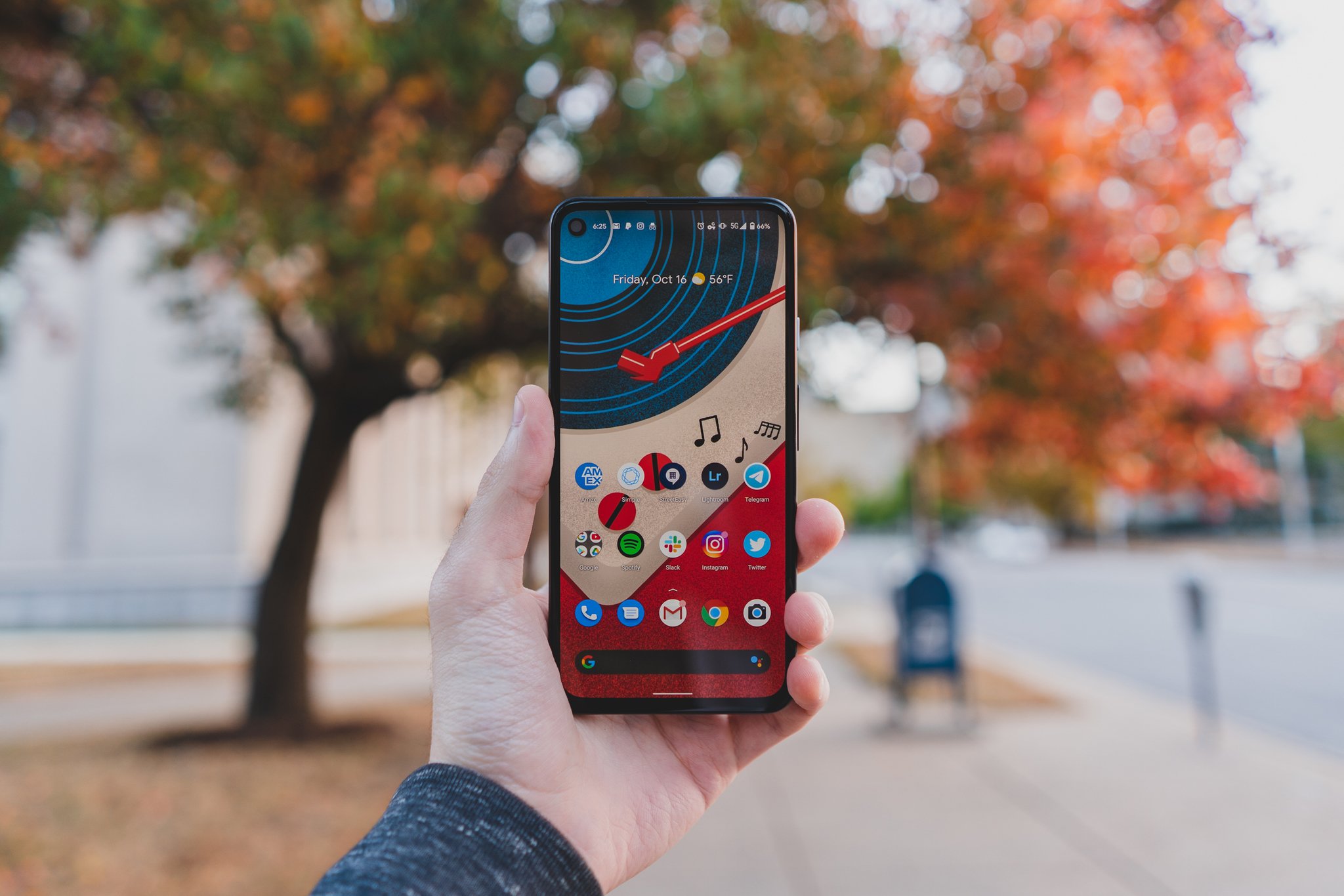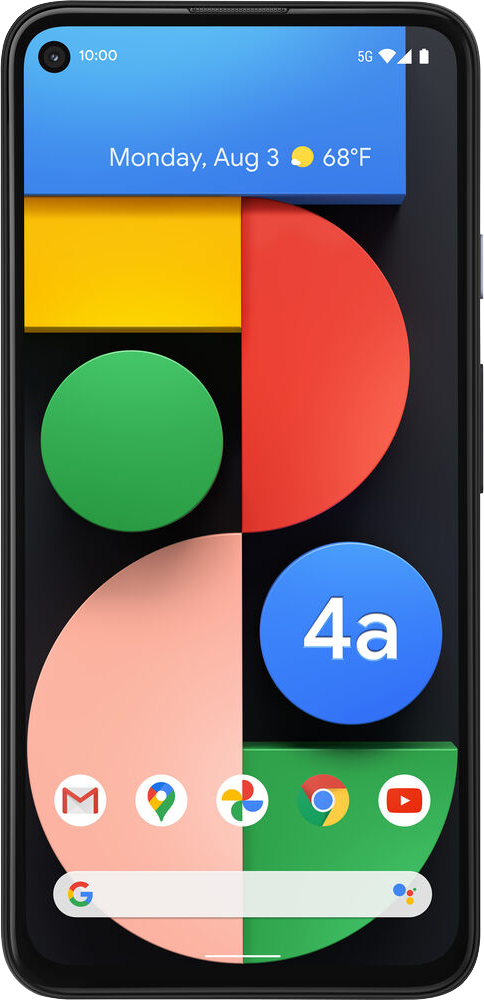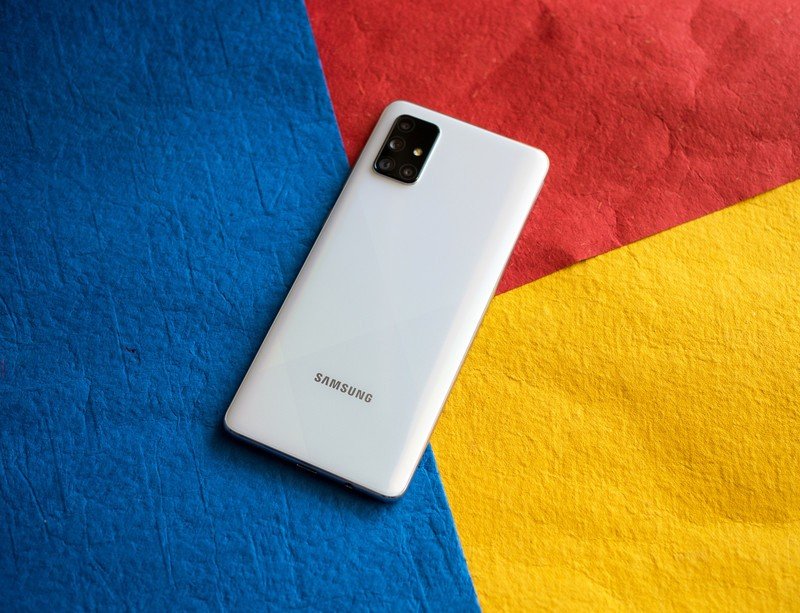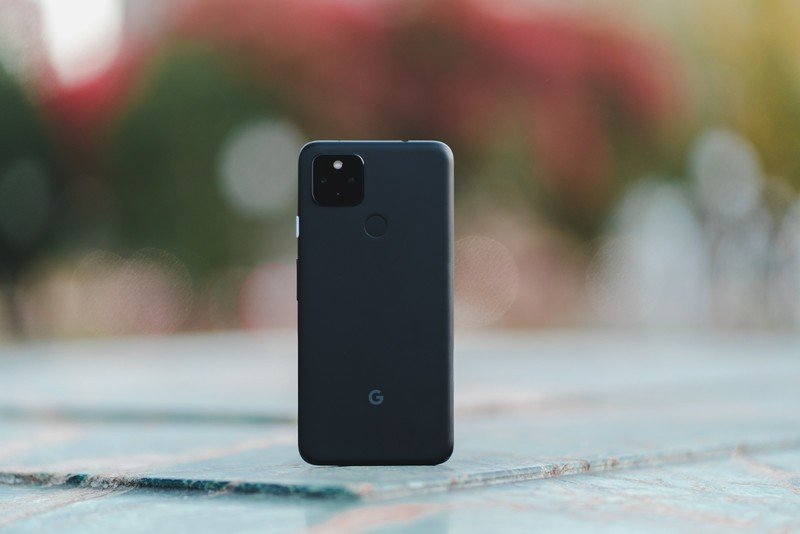Google Pixel 4a 5G vs. Samsung Galaxy A71 5G: Which should you buy?

Google Pixel 4a 5G

The Pixel 4a 5G delivers an outstanding camera, excellent hardware with 5G connectivity, and a large OLED screen with all-day battery life. Combine that with clean software and three guaranteed software updates, and you start to see why this is one of the best phones of 2020.
Google Pixel 4a 5G
Standout camera
Samsung Galaxy A71

The Galaxy A71 5G combines great hardware with a modern design and a large 6.7-inch AMOLED panel and 4500mAh battery. The phone ticks all the right boxes, and when you consider that it will also get three years of software updates, the A71 5G is a great overall value.
Samsung Galaxy A71
Everything you need
Mid-range phones have never been more exciting, and you only need to look to the Pixel 4a 5G and the Galaxy A71 5G to understand that fact. Both phones deliver great hardware, vibrant screens with large batteries, and lower the barrier to 5G connectivity. So let's take a look at how the Pixel 4a 5G holds up to the Galaxy A71 5G.
Pixel 4a 5G vs. Galaxy A71 5G: Vastly different design, same great value

The Pixel 4a 5G is all about nailing the basics. Google had its issues with hardware on previous Pixels, so with its 2020 series, it focused on delivering great internals along with a standout camera and all-day battery life. This phone debuted for $500 but is on sale right now for $460.
Samsung, meanwhile, took a lot of the design elements from its flagship Galaxy S20 — which is still one of the best Android phones available today — and in doing so created one of the best-looking mid-range phones also available.
The Galaxy A71 5G has a modern design and a stunning 6.7-inch AMOLED screen.
As a result, the Galaxy A71 5G looks much more enticing. You also get a large 6.7-inch AMOLED screen that's one of the best in this category. The screen is vibrant, has excellent contrast levels, and is ideally suited for playing games or streaming movies and videos. Samsung released the A71 5G earlier this year for $600, but you can get your hands on the phone for just $450 these days, making it a great bargain.
The Pixel 4a 5G has a muted design and is available in a single Just Black option, and while the design is understated, you get a 6.2-inch OLED panel that is fantastic. Both phones have FHD+ screens and are locked to 60Hz, so if you want a phone with a high refresh rate, you'll have to look elsewhere.
Get the latest news from Android Central, your trusted companion in the world of Android
While the Pixel 4a 5G may not have a flashy design, it has stereo speakers that give it a distinct edge over the A71 5G. On the subject of audio, both phones have a 3.5mm jack, so you can plug in wired audio gear without going the dongle route.
As for the hardware side of things, both devices are equally matched. You'll find the Snapdragon 765G on both phones, and 6GB of RAM as standard and 128GB of internal storage. Both devices also come with Sub-6 5G connectivity, and feature Wi-Fi ac modems, Bluetooth 5.0, and NFC.
The Pixel 4a 5G comes with a flagship-tier camera and clean software.
The only differentiator is with regards to the battery. The Galaxy A71 5G has a larger 4,500mAh battery versus the 3,885mAh unit on the Pixel 4a 5G, and that gives Samsung's phone a clear edge. The A71 also has 25W wired charging, with the phone taking just over an hour to fully charge the battery. The Pixel 4a 5G, meanwhile, comes with 18W USB PD charging.
Neither device has water resistance or wireless charging, so you will have to go one segment higher if you want these features. Other hardware differences include the mode of authentication. The Pixel 4a 5G relies on a traditional fingerprint sensor at the back of the phone, while the Galaxy A71 5G has an in-screen sensor.
Google continues to lead the way for clean software, and the Pixel 4a 5G comes with Android 11 out of the box and will get three years of guaranteed updates. The Galaxy A71 5G, meanwhile, is still on Android 10, and should receive the One UI 3.0 update based on Android 11 sometime early next year.
One point to highlight on the software front is that Samsung has also committed to delivering three years of software updates from this year, so the Galaxy A71 5G will get three Android version updates.
As for the camera, the Pixel 4a 5G has a 12.2MP module at the back joined by a 16MP wide-angle lens. Google delivers the best camera in this category, and the A71 5G just can't measure up. The 64MP lens on the A71 5G is good in its own right, but it isn't on the same level as the Pixel 4a 5G.
Pixel 4a 5G vs. Galaxy A71 5G: Making 5G more accessible
The goal with the Pixel 4a 5G and Galaxy A71 5G is to make 5G accessible to a mainstream audience, with both devices available for under $500 right now. Here's the hardware powering both devices.
| Category | Google Pixel 4a 5G | Samsung Galaxy A71 5G |
|---|---|---|
| Operating system | Android 11 | Android 10 One UI 2.0 |
| Display | 6.2-inch OLED 2340x1080 (19.5:9) Gorilla Glass 3 | 6.7-inch Super AMOLED+ 2400x1080 (20:9) Gorilla Glass 3 |
| Chipset | Snapdragon 765G 1 x 2.4GHz A76 1 x 2.2GHz A76 6 x 1.8GHz A55 7nm | Snapdragon 765G 1 x 2.4GHz A76 1 x 2.2GHz A76 6 x 1.8GHz A55 7nm |
| RAM | 6GB | 6GB/8GB |
| Storage | 128GB | 128GB |
| MicroSD slot | ❌ | Yes |
| Rear camera 1 | 12.2MP, f/1.7 4K at 30fps | 64MP, f/1.8 4K at 30fps |
| Rear camera 2 | 16MP, f/2.2 Wide-angle lens | 12MP, f/2.2 Wide-angle lens |
| Rear camera 3 | ❌ | 5MP, f/2.4 Macro lens |
| Rear camera 4 | ❌ | 5MP, f/2.2 Portrait lens |
| Front camera | 8MP, f/2.0 | 32MP, f/2.2 |
| Connectivity | 5G, Wi-Fi ac, Bluetooth 5.0 NFC, A-GPS | 5G, Wi-Fi ac, Bluetooth 5.0 NFC, A-GPS |
| Audio | USB-C Stereo sound | USB-C |
| Battery | 3885mAh Non-removable | 4500mAh Non-removable |
| Charging | USB-C 3.1 18W | USB-C 2.0 25W |
| Water resistance | ❌ | ❌ |
| Security | Rear fingerprint | In-display fingerprint (optical) |
| Dimensions | 153.9 x 74 x 8.2mm 168g | 162.5 x 75.5 x 8.1mm 185g |
| Colors | Just Black | Crush Black, Prism, Silver, Blue, Pink |
Pixel 4a 5G vs. Galaxy A71 5G: Two great choices

Honestly, you cannot go wrong with either phone, particularly considering that they're both available for $450. The Pixel 4a 5G has a distinct edge when it comes to the camera side of things, with Google essentially offering the same camera as last year's flagship Pixel 4. So if you want flagship-grade photos from a phone that costs less than $500, the Pixel 4a 5G is the obvious choice.
You won't go wrong regardless of whichever phone you pick up.
Sure, the Galaxy A71 5G doesn't quite measure up to the camera on the Pixel 4a 5G, but that doesn't mean you're getting a bad camera. The 64MP shooter takes great shots in most lighting condition, but it misses out on that final bit of quality that makes the Pixel 4a 5G the outright winner.
That said, the Galaxy A71 5G has plenty to offer in other areas. The battery life is incredible, the 6.7-inch AMOLED screen is ideal for playing games and streaming videos, and the fact that Samsung will deliver three platform updates to the A71 5G is a huge deal.
That effectively puts the phone on an equal footing with the Pixel 4a 5G, and Samsung is set to deliver the Android 11 update to the A71 soon. So if you're a Galaxy user and are considering making the switch to a 5G-enabled phone, you'll love what the A71 5G has to offer.

The best camera for less
If you want a phone with a clean software, great camera, and 5G connectivity, you cannot go wrong with the Pixel 4a 5G. The phone has a large 6.2-inch OLED panel backed by all-day battery life, three years of updates, and a truly outstanding camera that outshines every other phone in this segment.

Stunning mid-range option
If you're a long-time Galaxy user and want to upgrade to a mid-range phone with 5G connectivity, the Galaxy A71 5G is the obvious choice. The phone has a modern design with a massive 6.7-inch AMOLED panel, two-day battery life, and three years of software updates. The camera isn't as good as the Pixel 4a 5G, but other than that the A71 5G is a strong contender.

Harish Jonnalagadda is Android Central's Senior Editor overseeing mobile coverage. In his current role, he leads the site's coverage of Chinese phone brands, networking products, and AV gear. He has been testing phones for over a decade, and has extensive experience in mobile hardware and the global semiconductor industry. Contact him on Twitter at @chunkynerd.
